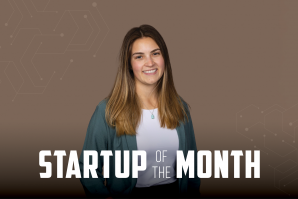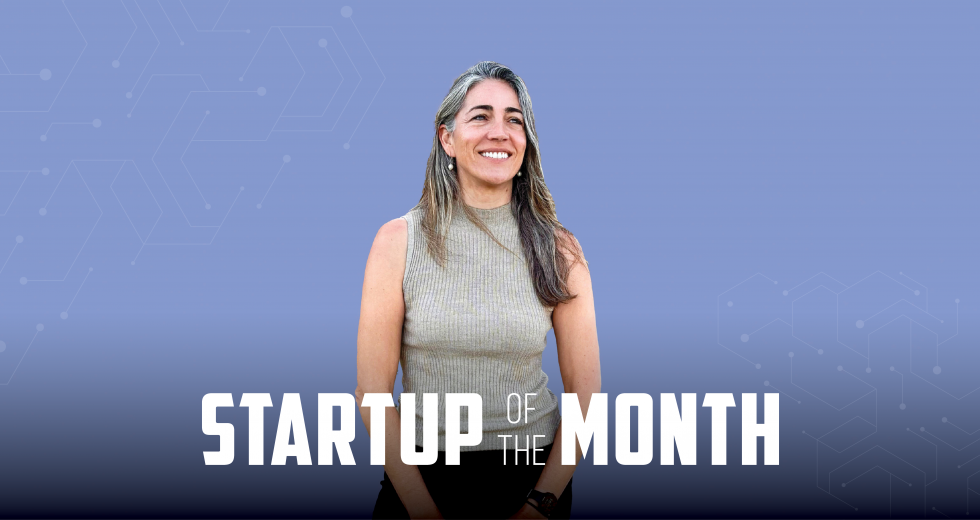Nearly a decade ago, researchers issued a grim prediction: By 2050, plastic in the ocean would outweigh all the fish. Now, just 25 years away from that deadline, a tech startup named after sea nymphs in Greek mythology is turning the tide on the ocean’s plastic waste.
Nereid Biomaterials, spun out of the University of Santa Barbara, is developing ocean-degradable materials to replace plastics in sensors, fishing traps and other instruments. Too often, these tools outlive their purpose and, once abandoned, endanger marine life.
Plastic pollution causes many problems. Since it doesn’t break down, it builds up in the food chain, and larger pieces can damage the internal organs of fish, mammals and seabirds, according to Alyson Santoro, CEO and a co-founder of the startup, part of the 2025 cohort at FourthWave, an accelerator for women-led startups in partnership with Sacramento State.
The other co-founders are Melissa Omand and Anne Meyer. Made up of material scientists, microbiologists and oceanographers, the Nereid Bio team is developing the technology based on polyhydroxyalkanoates, or PHA, a natural compound produced by bacteria. In the ocean, microbes can “eat” this material, leaving no microplastics or toxic residue behind.
While PHA isn’t new, the team has taken a novel approach to make the material even more biodegradable. By embedding additives directly into the material, they can fine-tune how fast it breaks down, depending on the instrument’s purpose.
“We’ve developed a way to embed microbes into the polymer as objects are being formed,” Santoro says. “You use a lot of heat to make plastic, so the enzymes and bacteria have to survive the heating process. That way, the instrument begins eating itself as soon as it hits the water.”
The technology is currently in the prototyping stage. While biodegradable materials are costly, and federal funding has been shaky, the startup received a small state grant to support adding biodegradable tags to lobster traps. Nereid Bio is looking to raise $200,000 to $400,000 for a pre-seed round.
Materials that can actually compost in the ocean would be a major step forward, according to Dana L. Morse, senior extension program manager and aquaculture lead with Maine Sea Grant and the University of Maine Cooperative Extension.
Most of Morse’s work revolves around marine industries, including aquaculture and fisheries. He recognizes that plastics are affordable and functional, but any chance to improve them should be taken. That includes culture and fishing gear to packaging and transportation equipment, and the list goes on. The “gold ring,” he adds, would be for Nereid Bio to come up with an affordable, functional alternative to nylon zip ties.
“Harvesters and growers especially are quite aware that their livelihoods depend on good water,” Morse says. “Reducing pollution is both a good goal in and of itself, but also in their best interests. Improving our stewardship of the ocean is worth the work.”
As an advisor, Morse has connected with the Nereid Bio team via teleconference and many email exchanges. What they’re doing, he says, fits right in with his work to identify use cases with industry partners, then testing different alternatives. In general, Morse says, the biomaterials space is exciting to watch.
“As I say, it’s a difficult problem to replace plastics, but I think we can get there,” he says. “The solutions are all in nature, and we just have to find them.”
Correction Nov. 10, 2025: A previous version of this article used an incorrect pronoun for Dana L. Morse.
–
Stay up to date on business in the Capital Region: Subscribe to the Comstock’s newsletter today.
Recommended For You

Startup of the Month: Everest Medical Solutions
A breakthrough tool for safer deliveries when babies get stuck
Doctors call it the “obstetrician’s nightmare”: a childbirth emergency where the baby’s head emerges, but the shoulders get stuck behind the mother’s pubic bone. The founding duo at Everest Medical Solutions has designed a device to make delivery safer and less traumatic when this complication arises.

Startup of the Month: The Make Box
Robotic kits made to click with STEM learners
From crafting with popsicle sticks in elementary school to working with small electronic devices in middle school, Kavya Khare clearly had DIY in her DNA. She is now the founder of The Make Box, a UC Davis and Bay Area-based startup that creates modular robotic kits, SnapBots, for young students to engage in STEM.

Startup of the Month: Purple Door Finders
Platform helps seniors connect with communities directly
Purple Door Finders is a platform for seniors to connect with communities directly, eliminating the hassle of sales solicitations and the costs of referral fees paid by the communities. The Folsom-based startup is a software company that provides real-time information on vacancies, pricing, move-in incentives, services, amenities, community events and more.

Startup of the Month: InnerPlant
Detecting crop diseases before symptoms show
InnerPlant develops seed technology that turns crops into living sensors that detect stress (such as fungus, pathogens and nitrogen deficiency) at the molecular level before visible symptoms appear. The startup’s initial focus is a soybean engineered to emit a fluorescent optical signal within 48 hours of fungal infection.



